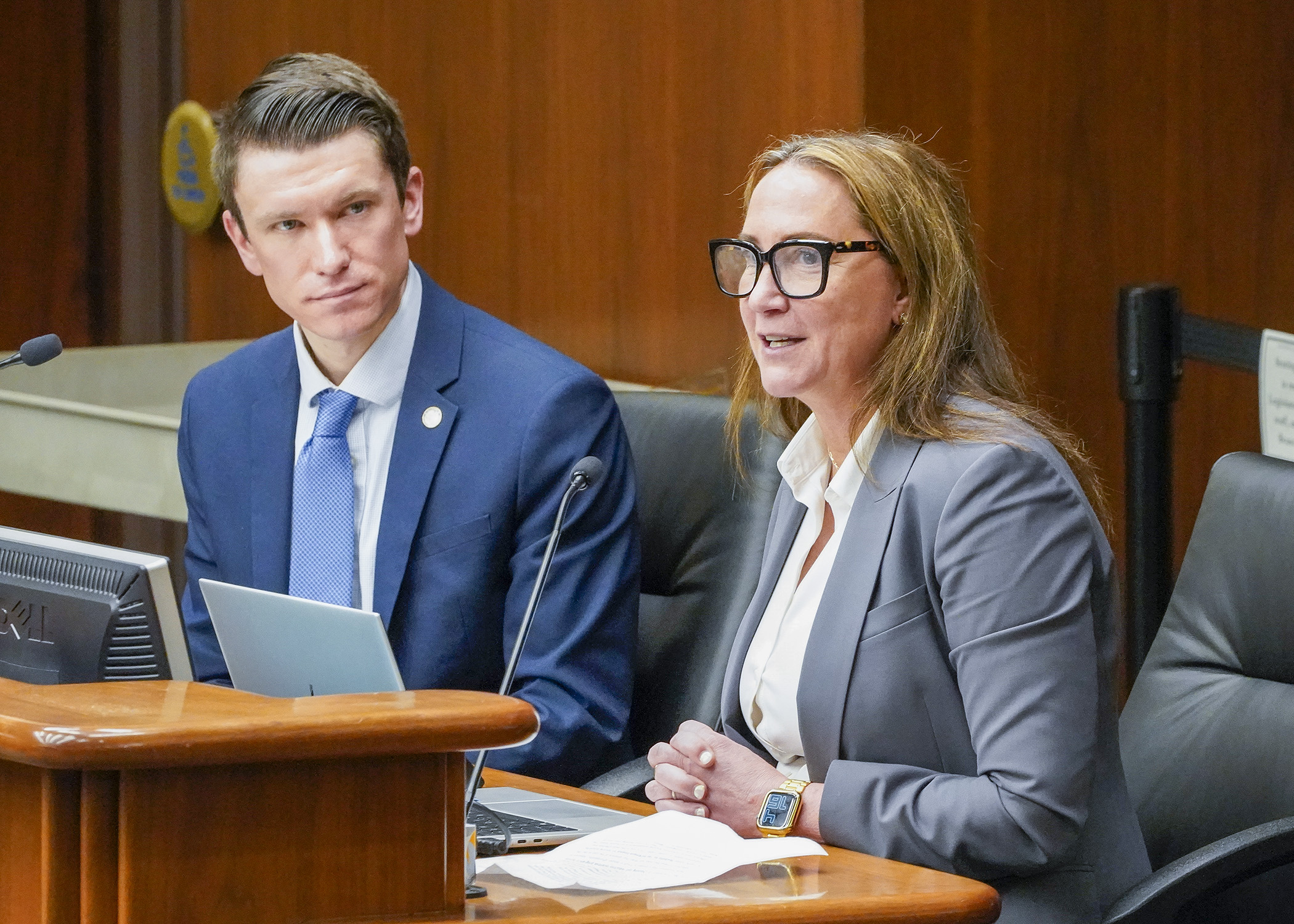Lawmakers consider millions for grant programs targeting Minnesota’s housing shortage

Legislators have heard time and time again throughout the session that Minnesota has a systemic undersupply of housing.
To encourage the development of land and buildings for use as housing, HF743 would implement policy changes and appropriate money for new and pre-existing grant programs.
The House Housing Finance and Policy Committee approved the bill Tuesday, as amended. It’s now heading to the House Taxes Committee.
Rep. Matt Norris (DFL-Blaine), the bill sponsor, believes the housing affordability crisis can be addressed in two ways. One involves increasing supply and another necessitates policy solutions for regulatory or market conditions that are increasing prices.
“This bill aims to incentivize the conditions that create affordability throughout our state,” he said.
Several grant programs would be established, including:
- the Naturally Occurring Affordable Housing program, which would be funded with a $50 million appropriation to award grants for naturally occurring affordable housing owners to acquire and rehabilitate existing properties;
- the Greater Minnesota housing infrastructure grant program, which would receive $2.5 million to fund infrastructure development outside the metro area;
- the housing cost reduction incentive program, which would both reimburse municipalities for fee waivers and offer reductions for developers for a yet-to-be determined appropriation; and
- a $5 million pilot program for infrastructure grants.
Existing grant programs would get a piece of the pie as well, with nearly $22.43 million in fiscal year 2024 to the Economic Development and Housing Challenge Program and $10 million in fiscal year 2024 to local housing trust funds.
Other parts of the bill would:
- authorize the Minnesota Housing Finance Agency to issue $400 million in housing infrastructure bonds;
- permit Minnesota Management and Budget to sell up to $100 million in bonds to fund public housing rehabilitation;
- impose an excise tax on corporate entities purchasing residential real property; and
- double the levy limit housing and redevelopment authorities can tax.
Finally, the proposal could authorize cities to require property owners to provide relocation assistance to tenants in affordable housing units when the property is converted to a market rate unit. Cities could also require tenants be notified when ownership of affordable housing units changes.
Paul Eger, senior vice president of governmental affairs for Minnesota Realtors, appreciates the infrastructure grants and fee reduction waivers, but has concerns about the real estate excise tax.
Increasing taxes on the purchasing of properties fails to address housing supply issues and will increase the cost of housing for subsequent buyers or renters because the corporate entity will pass those costs along, he said.
Related Articles
Search Session Daily
Advanced Search OptionsPriority Dailies
Legislative leaders set 2026 committee deadlines
By Lisa Kaczke Legislative leaders on Tuesday officially set the timeline for getting bills through the committee process during the upcoming 2026 session.
Here are the three deadlines for...
Legislative leaders on Tuesday officially set the timeline for getting bills through the committee process during the upcoming 2026 session.
Here are the three deadlines for...
Latest budget forecast projects nearly $2.5 billion surplus, but red ink down the road
By Mike Cook Three weeks before Christmas, state budget officials provided some merriment to Minnesotans. However, Grinch-like transformations lurk.
Released Thursday, the November ...
Three weeks before Christmas, state budget officials provided some merriment to Minnesotans. However, Grinch-like transformations lurk.
Released Thursday, the November ...